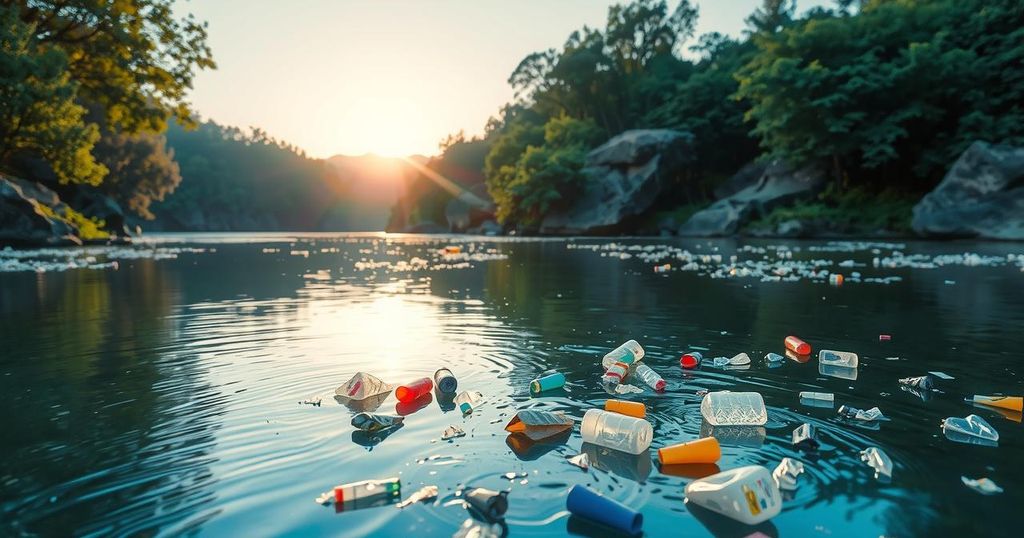Zimbabwe’s Struggle with Illegal Chinese Plastic Imports and Environmental Impact
Zimbabwe faces a growing crisis due to the proliferation of illegal plastic imports, primarily from Chinese manufacturers that do not comply with national regulations. Despite bans on plastics thinner than 30 microns, enforcement is weak, leading to widespread environmental damage. The economy’s reliance on Chinese investment complicates efforts to address these issues, with ongoing challenges in regulatory compliance and tax evasion further undermining efforts to combat plastic pollution.
At Mbare marketplace in Harare, Zimbabwe, plastic bags are prevalent as vendors provide them for customer purchases. Many of these bags come from Chinese imports or local Chinese manufacturers, and they do not comply with Zimbabwe’s regulations on plastic thickness. A vendor, Tichaona, acknowledged the legality issue, attributing the sales of cheaper bags to high demand despite knowing the risks involved.
An employee at Colour Maximal, a Chinese-affiliated company, stated that they are aware that the produced plastics do not meet the legal standard of 30 microns, yet continue to produce them due to demand. Zimbabwean law prohibits plastics thinner than this threshold, causing a significant pollution crisis exacerbated by weak enforcement of these regulations. Donald Marumbwe, a veteran in the industry, reiterated that cheaper products flood the market, further complicating the enforcement efforts.
Independent testing revealed that plastic samples from Colour Maximal were below the legal thickness, with some bags measuring only 20 microns. Bread bags from the local marketplace were even thinner, raising environmental concerns as these plastics degrade slowly, creating microplastics harmful to wildlife and the human food chain. Companies, focused on profit, prioritize low production costs over compliance and sustainability.
Amkela Sidange of Zimbabwe’s Environmental Management Agency highlighted that they conduct inspections to enforce regulations but noted that companies often evade scrutiny. Furthermore, many products lack proper labeling, making it challenging to trace them back to manufacturers. This lack of accountability contributes to rising plastic imports from China, now significantly outpacing those from South Africa.
The historical context of China’s rising economic influence in Zimbabwe traces back to former President Robert Mugabe’s efforts to strengthen ties with China, which has since led to increased foreign investment alongside environmental degradation. Economics professor Gift Mugano emphasized the partnership between Chinese firms and local politicians, arguing that such relationships often lead to disregard for environmental laws.
Despite attempts to mitigate the plastic crisis, such as implementing a 20% tax on plastic bags, companies frequently bypass regulations. An employee from Colour Maximal reported threats from the Zimbabwe Revenue Authority due to tax payment failures. In a visit to a registered plastic company, representatives admitted their products were below legal standards, showcasing the persistent challenges in maintaining compliance.
Zimbabwe is grappling with a significant environmental issue caused by illegal plastic imports and manufacturing practices that violate local regulations. Despite legal frameworks in place, enforcement remains weak, allowing for continued disregard for environmental standards by many companies, particularly those linked to Chinese investment. The ongoing struggle against plastic pollution highlights the need for stronger regulatory oversight and corporate accountability to protect the environment and public health.
Original Source: www.thezimbabwean.co




Post Comment